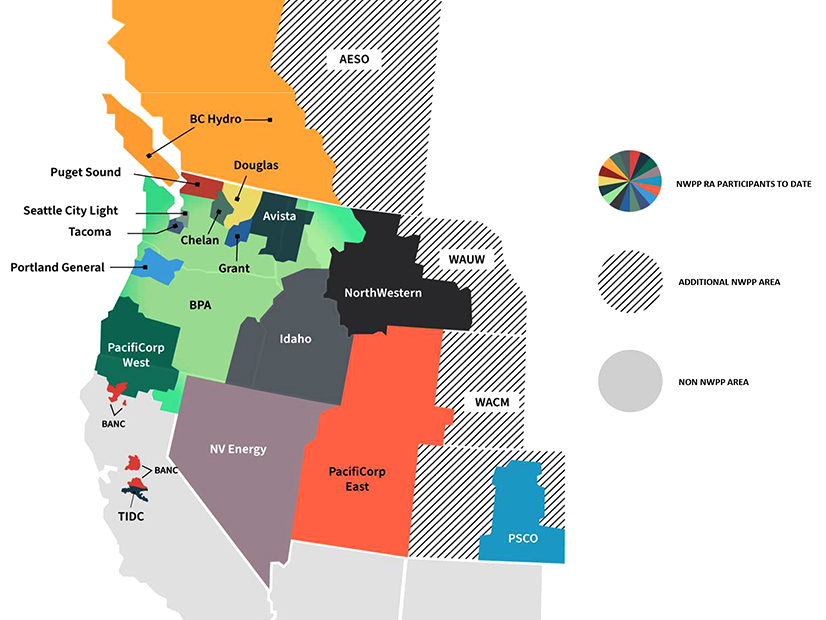Continue reading "SPP to Operate NWPP’s Resource Adequacy Program"
SPP continues to spread its footprint with an announcement Tuesday that it will operate Northwest Power Pool’s resource adequacy (RA) program in the Western Interconnection.
The RTO will work with NWPP and its RA participants to help develop, implement and operate the program. As a program operator, SPP will perform forward-showing and operations program functions, modeling and system analytics, real-time operations, continual technical improvement and IT systems work.
SPP is already providing reliability coordination services for entities n the West and is scheduled to go live with its Western Energy Imbalance Service market in 2024.
RA has become a hot topic in the West after last summer’s extended heat wave forced CAISO to initiate California’s first rolling blackouts in two decades. Several neighboring balancing authorities came close to taking the same action.
SPP CEO Barbara Sugg said the grid operator “appreciates” RA’s importance in the Western Interconnection and pointed to the RTO’s success in managing a multistate region.
“We look forward to the value we’ll bring Northwest Power Pool members through strong customer involvement and experience improving reliability across multiple states with diverse generating resources,” Sugg said.
“We believe SPP’s track record of successfully administering a multistate RA program will help us operate the program in a manner that benefits all participants as well as the region,” NWPP President Frank Afranji said.
Aided by former SPP COO Carl Monroe, NWPP wrapped up the RA program’s design phase in January and plans to unveil a “nonbinding” version in the third quarter of this year. The full binding program is scheduled to be rolled out in 2024. (See NWPP RA Program Taking Shape for Q3 Launch.)
Portland, Ore.-based NWPP dates back to 1941, as does SPP. It is a voluntary organization with 42 members, composed primarily of major generating utilities serving the Northwestern U.S., British Columbia and Alberta. Smaller, principally non-generating regional utilities participate indirectly through the member system with which they are interconnected.




